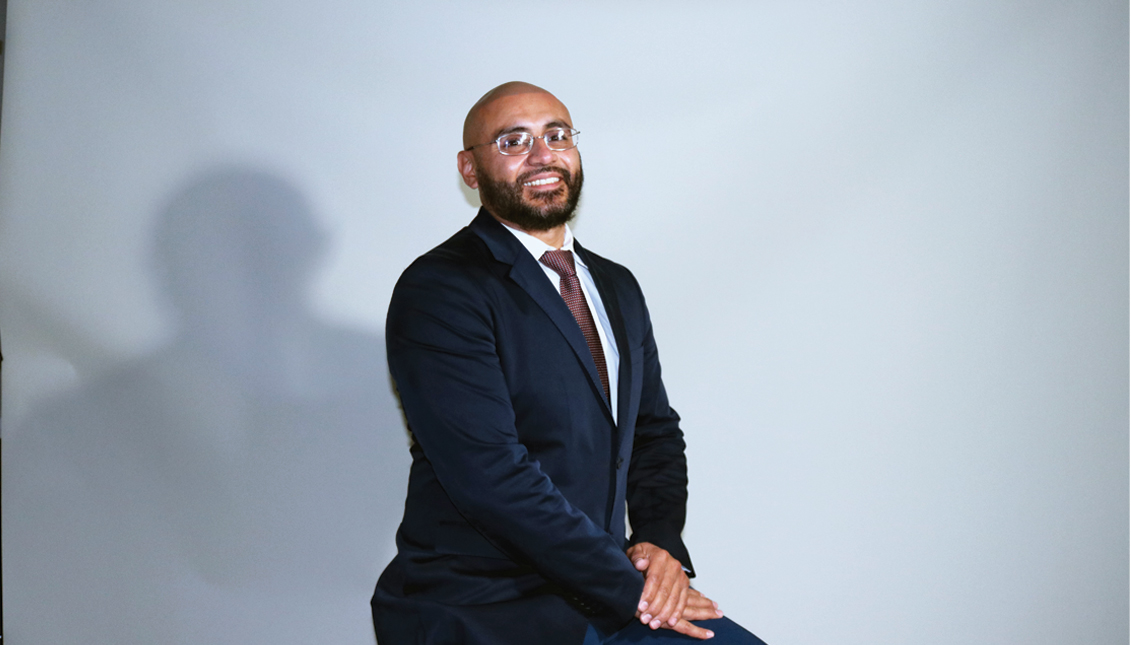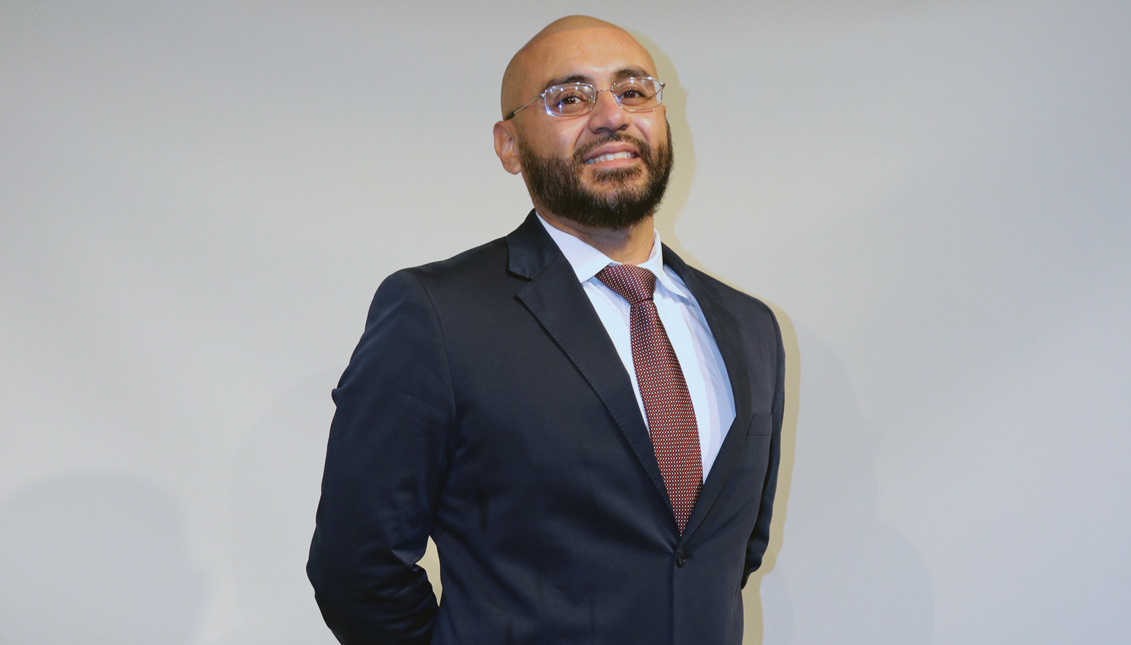
Meet Esteban Vera Jr.: Philly's Latino Labor Champion
Philadelphia’s only Latino labor leader is homegrown, and he’s determined to carve a path that others follow.
In looking back on his upbringing, Esteban Vera Jr. calls everything a “blessing.”
“Together, it takes a village sometimes to raise a child,” said Vera.
For him, that village was the block of Mutter and Cambria Streets in the Fairhill section of North Philadelphia.
His parents were proud Puerto Ricans who came to the city in their late teens. Vera’s dad worked in a factory for over 40 years to support the family, and his mom never worked on account of her poor health.
“We didn’t have a lot of money,” he said, “but we were a modest family.”
In addition to the importance of school and respect for all, Vera’s parents also taught him the “blessing” of citizenship.
It’s a coveted designation that millions come to the U.S. annually to one day achieve, and one his family already had thanks to their Puerto Rican heritage.
“A lot of people can really make a better life for their families,” said Vera Jr.
In his dad’s eyes, citizenship was an opportunity to better his family’s situation and the lives of others in general going through similar circumstances.
That’s a mindset Vera Jr. would carry throughout his whole life.
“Don’t waste an opportunity,” he remembers his dad saying, “because you might have it to help somebody else.”

Vera Jr.’s first opportunity to do so out of high school was in the military. It was a dream he had ever since he was six years old.
At that age, he remembers watching an Army commercial on TV and breaking the news to his mom.
“I told her I was going to join,” said Vera Jr.
In the military, Vera was deployed to Bosnia on a peacekeeping mission.
“We considered ourselves the world police,” he said.
Still, despite the values he came into the military with from his parents, Vera said the experience had “better lessons” to teach him.
At the time of his deployment in the mid-90s, Bosnia was in the middle of a civil war that featured the worst ethnic cleansing since the Holocaust.
“We see the bad sometimes in our own country, but over there, you see people with no shoes walk around with AK-47s,” said Vera Jr.
In another instance, he remembers a little boy that would come by his squad’s post from time to time, sometimes with his baby sister also in tow. He didn’t know any English but would still interact with the soldiers any chance he got.
“All he would know is ‘Pepsi,’” said Vera Jr., who would oblige the boy’s request whenever he came with a Pepsi and a Snickers bar.
One day, the boy stopped coming, and Vera Jr. later found out that he and his sister hadn’t made it out of their situation, caught in the crossfire of war.
“To this day, I still remember that little boy,” he said.

When Vera Jr. came back from the military, he went into construction work with his uncles.
They’d been members of the same construction union since he was a kid. Early on, he was attracted to the work the organization did in the community.
“I knew they always helped people, and I would hear stories about the things they would do,” said Vera Jr.
The union also provided Vera with a similar chain of command and structure to the military.
He initially joined Laborer’s Local #57 on a volunteer basis in 2005 while still working construction. In two years, he was offered the position of organizer as a result of all his volunteer work.
In the role, Vera Jr. spent long hours fighting on behalf of exploited workers, demanding their rights, better work conditions, and fair pay.
That grind cemented his ascent up the leadership ladder of Local #57.
“I think I fell into it,” Vera Jr. said of entering union leadership.
Vera’s rise in many ways, followed in the footsteps of former Philadelphia City Councilmember Juan Ramos, who was a major Latino figure in the labor movement throughout the 70s, 80s and 90s. Ramos’ union was Laborers Local #332, which he was a member of for more than 20 years. He rode that membership to political office in the early 2000s.
Before Vera could assume the higher role of board member in Local #57, he attended the now-defunct National Labor College in Silver Springs, Maryland, to prepare for more new tasks like negotiating contracts.
A year after being a board member, Vera Jr. was installed as the recording secretary at the union in charge of maintaining all of the organization’s correspondences, reports, and grievances from members.
Given his success negotiating contracts, he was also named a delegate to the Laborer’s Council of the Metropolitan Area of Philadelphia and Vicinity.
In 2016, Vera Jr. made history when he was named the business manager of Local #57. He is the first Latino labor leader of a major union in the Philadelphia region and is using that title to push his own and other unions towards a future of more inclusivity.
“I’m hoping we’re leading the way when it comes to that sense,” he said.
At the helm of Laborer’s Local #57, Vera Jr. represents workers across several industries, including those in heavy highway and road construction, lumberyards, scrap yards, cemeteries, roofing, and roadway flagging.
RELATED CONTENT
Of the close to 3,000 members, Vera Jr. estimates a third are Hispanic or Latino, a third African-American, and a third caucasian with other nationalities also mixed in.
“Everywhere I go to speak, I always boast about the diversity of our local,” he said. “When it comes to the industry as a whole with the other unions, that’s not the case.”
Every month, Vera Jr. meets with the other unions’ heads to talk about the diversity of the workforce, among other issues.
“I try to hold people accountable,” he said. “If I see a lack of Latinos or African-Americans, I’ll bring that up in a heartbeat.”
Overall, he said the other union leaders and contractors are receptive and aware of the issue, but change is slow.
“We’re headed in the right direction,” said Vera Jr.
That comes amid a long history of racism within Philadelphia’s labor unions.

It’s also something Vera Jr. experienced in his rise to the top and as a leader. He said that, when he was a newly-appointed leader, many individuals on the outside judged him for being Latino.
Over time, however, Vera said many are now his biggest allies, having won them over with his work.
“The best way to handle it is to show who you are,” he said. “Not go down a negative path, but try to prove your work ethic.”
Vera Jr.’s position is also voted by the membership, and he was unopposed the last time he ran.
“It’s a testament to the member being content,” he said. “We’re pretty tight.”
Throughout it all, the members sit at the heart of what he and the union do for each other and the community.
“It’s taking care of our home,” said Vera Jr.
Amid COVID-19, Laborer’s Local #57’s community efforts have never been more important.
The organization has partnered with the Philadelphia Sheriff’s Department to host food drives and several other community organizations to help provide everything from school supplies to information around voting in the 2020 Election.
On Vera Jr.’s end, the efforts into the community from the jump have always hearkened back to his dad’s words of helping others. Many of those in the community are also the next generation, just in need of a little help here and there.
“I was that one kid in the neighborhood at one point,” he said.
As a union leader, Vera Jr. is now the role model for those same kids.
“That one kid that you’re helping out could be the next leader of the city, or the state, or the country,” said Vera Jr.
Given all that 2020’s thrown, that leader may be just what the U.S. and world needs.











LEAVE A COMMENT:
Join the discussion! Leave a comment.